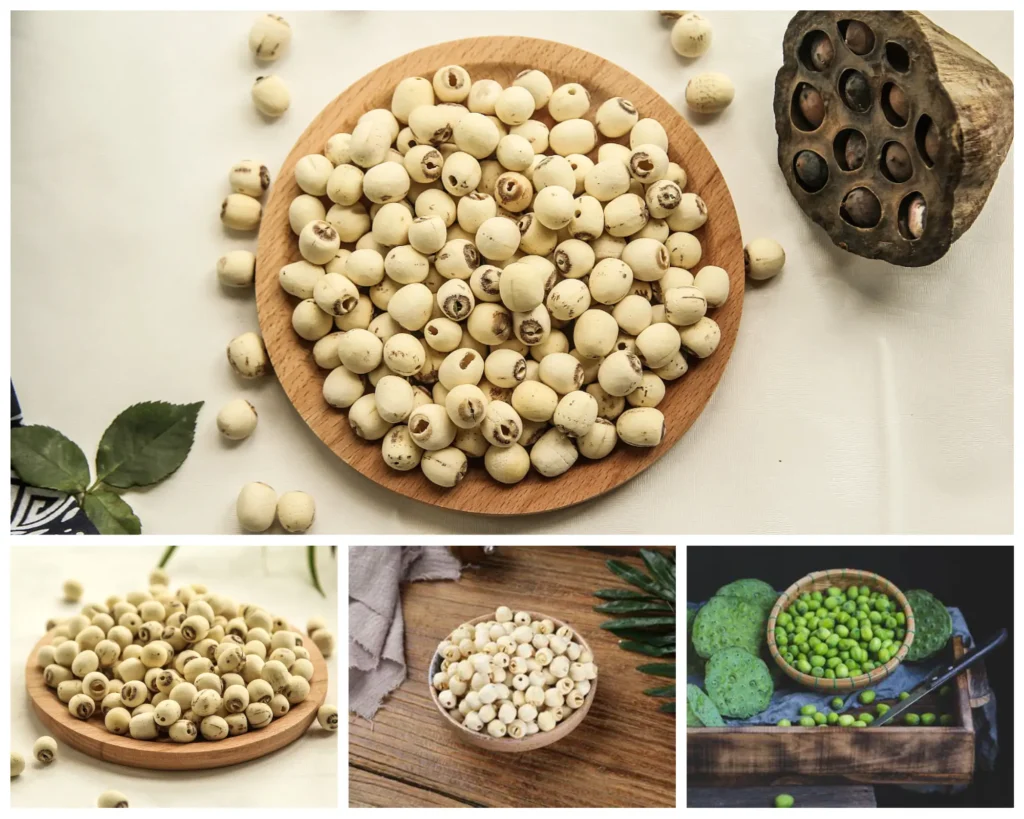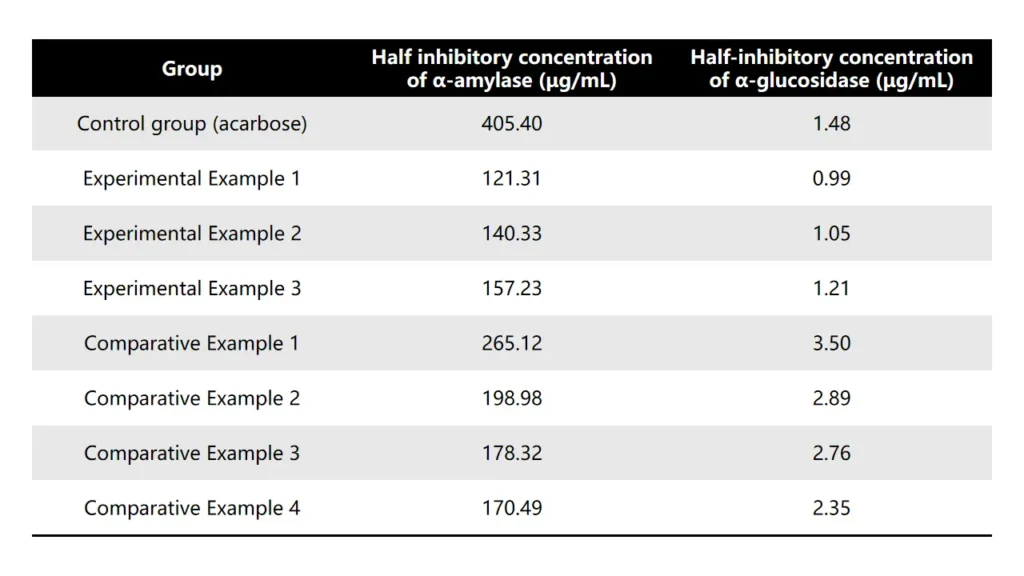Abstract
(1) Benefits of Lotus seed shell polyphenols
- Antioxidant
- Lowering blood sugar and blood lipids
- Protecting the liver
(2) Supplements containing Sophora japonica polysaccharides
- Tablets: such as Sophora japonica polysaccharide tablets, liver protection tablets, blood circulation tablets.
- Capsules: Sophora japonica polysaccharide capsules, anti-inflammatory capsules, blood sugar lowering capsules.
- Powders: Sophora japonica polysaccharide powder, fitness powder.
- Gummies: anti-inflammatory gummies, antioxidant gummies, immune enhancement gummies, children's health gummies.
(3) Popular countries
With the increasing demand for natural health products, lotus seed shell polyphenols are becoming increasingly popular in the following countries and regions:
- China: Lotus seed shell polyphenols are widely used in traditional Chinese medicine, mainly for antioxidant and anti-inflammatory health products.
- Japan: The Japanese market has a strong demand for natural ingredient health products, and lotus seed shell polyphenols are gradually gaining attention.
- South Korea: The health product market in South Korea has also begun to pay attention to the health benefits of lotus seed shell polyphenols, especially its antioxidant and anti-inflammatory effects.
- United States and Europe: With the increase of scientific research, lotus seed husk polyphenols are gradually gaining popularity in the natural health product market in these regions.
(4)Extraction Methods for Lotus Seed Husk Polyphenols
- Solvent Extraction: Reliable but low yield and purity.
- Ultrasonic Extraction: High efficiency and reduced impurities.
- Microwave Extraction: Fast and energy-efficient, limited to lab use.
- Enzymatic Extraction: Low energy, high efficiency, maintains natural structure.

Article Content
Lotus seed husk polyphenols are derived from lotus seed husk (Nelumbo nucifera), which is the hard shell part of the outer layer of lotus seeds. Lotus seed husk polyphenols have multiple biological activities such as antioxidant, anti-inflammatory, antibacterial and anti-cancer. Lotus seeds (Nelumbo nucifera) are native to Asia, especially in China, India, Japan and South Korea, and are widely used in food and medicine.
1. Health effects
A.Antioxidant
Lotus seed husk polyphenols and VC have good scavenging effects on DPPH free radicals. As the concentration of the sample solution increases, the scavenging rate of DPPH free radicals increases. When the mass concentration of the sample solution is 100μg/mL, the scavenging rate of lotus seed husk polyphenols on DPPH free radicals reaches 95.45%. Lotus seed shell polyphenols and VC both have strong ABTS+ scavenging ability. When the sample concentration is lower than 100μg/mL, the ability of lotus seed shell polyphenols to scavenge ABTS+ is stronger than that of VC. When the sample mass concentration reaches above 100μg/mL, the scavenging rates of lotus seed shell polyphenols and VC on ABTS+ are close to 100%. Lotus seed shell polyphenols and VC both have a certain scavenging effect on superoxide anions, and the scavenging ability increases with the increase of sample concentration. Lotus seed shell polyphenols and VC both have a good scavenging effect on nitrite ions, and the ability to scavenge NO2- increases with the increase of sample concentration. When the mass concentration of the sample solution is 100μg/mL, the scavenging rate of lotus seed shell polyphenols on NO2- reaches 41.20%. Lotus seed shell polyphenols have good antioxidant activity. In the T-BHP-induced oxidative damage model, lotus seed shell polyphenols can significantly restore the decreased survival rate of Hep G2 cells caused by T-BHP, alleviate the decrease in intracellular GSH and the increase in ROS, MDA, and LDH levels caused by T-BHP, and alleviate the damage caused by oxidative stress to Hep G2 by upregulating the relative expression levels of GPx, GCLC, SOD, and GSH genes.
B.Hypoglycemic and lipid-lowering
By extracting lotus seed shell polyphenols in the green and ripe period, the effect of polyphenol extracts on adipocytes was studied. The study found that the lotus seed shell polyphenol extracts in the green and ripe period can inhibit adipocyte differentiation, and the inhibitory effect has a certain dose-effect relationship with the concentration of the extract. Studies have shown that the lotus shell, lotus shell, and lotus skin extracts extracted with 90% methanol have strong α-glucosidase activity inhibition ability, and the ability to inhibit α-glucosidase activity is 85 times, 32.9 times, and 21.7 times that of acarbose, respectively. After administering lotus seed shell proanthocyanidins and lotus pod proanthocyanidins to mice, the weight gain of mice and white adipose tissue can be significantly inhibited, the blood leptin level can be reduced, and the cholesterol, triglyceride, high-density lipoprotein cholesterol and low-density lipoprotein cholesterol levels in serum and liver can be improved; lotus seed shell proanthocyanidins and lotus pod proanthocyanidins can improve obesity, insulin resistance and oxidative damage in obese mice.
C.Protect the liver
The study found that water lily shell extract can inhibit the damage of carbon tetrachloride or D-galactosamine to mouse liver by reducing the levels of IL-1, IL-6, ALT, AST, TNF-α and INF-γ in mouse serum. The total extract of lotus shell plays a protective role against acute alcoholic liver injury by hindering the levels of TG and MDA in mouse liver tissue and promoting the level of GSH.
2. Product application
Based on the above health effects, Sophora japonica polysaccharide can be made into the following supplements:
- Anti-inflammatory supplements: used to reduce inflammatory responses, relieve joint pain and other inflammation-related problems.
- Antioxidant supplements: protect cells from free radical damage and delay the aging process.
- Liver protection supplements: promote liver health and support detoxification.
- Blood circulation supplements: improve blood circulation and prevent vascular-related diseases.
If divided by product type, there are currently a variety of supplement types with Sophora japonica polysaccharides as ingredients on the market, mainly including:
A. Tablets
- Sophora japonica polysaccharide tablets: used for anti-inflammatory and anti-oxidation, suitable for consumers who need to take it for a long time.
- Liver protection tablets: Sophora japonica polysaccharides help liver health and are suitable for liver protection supplements.
- Blood circulation tablets: improve blood circulation and prevent vascular-related diseases.
B. Capsules
- Sophora japonica polysaccharide capsules: easy to swallow, mainly used to enhance immunity and anti-oxidation.
- Anti-inflammatory capsules: used to relieve joint pain and other inflammation-related problems.
- Blood sugar-lowering capsules: help regulate blood sugar levels, suitable for diabetic patients.
C. Powders
- Sophora japonica polysaccharide powder: can be added to beverages or foods for daily intake, mainly used for anti-oxidation and immune enhancement.
- Nutritional drink powder: contains Sophora japonica polysaccharide, suitable for making anti-inflammatory and antioxidant health drinks.
- Fitness powder: used to enhance immunity and promote overall health.
D. Gummies
- Anti-inflammatory gummies: Add Sophora japonica polysaccharide to help reduce inflammatory reactions, suitable for consumers who need anti-inflammatory health care.
- Antioxidant gummies: The antioxidant properties of Sophora japonica polysaccharide make it suitable for use in health gummies to delay aging.
- Immune-enhancing gummies: This type of gummies can help improve immunity and is suitable for consumers who need to strengthen the immune system.
- Children's health gummies: Rich in Sophora japonica polysaccharide, suitable for improving children's immunity and overall health.
3. Production technology
Polyphenols are a general term for a class of polyphenolic substances. As one of the secondary metabolites of plants, they are widely distributed in nature. Polyphenols have strong antioxidant effects and are mostly used in daily chemicals, food, pharmaceuticals and other industries. Especially in pharmaceutical production, polyphenols have been reported to have anti-tumor, anti-inflammatory, antibacterial, blood pressure lowering, and blood sugar lowering effects. Existing polyphenol extraction processes include solvent extraction, ion precipitation, microwave extraction, supercritical extraction, ultrasonic extraction, enzymatic extraction, etc. Although solvent extraction is stable and reliable, the extraction rate is low, the purity of the product is also low, and the product is easily oxidized during the extraction process. Although ion precipitation reduces the amount of solvent, the loss is large and the extraction efficiency is low. Microwaves are electromagnetic waves with a certain frequency range, that is, electromagnetic waves with a certain energy range. Therefore, microwaves have the advantages of high efficiency, short time, and energy saving, but they can only be used in laboratories at present, and the sample volume cannot be too large. Enzymatic extraction of polyphenols has the characteristics of low energy consumption, high efficiency, and maintaining the original structure of natural products.

4. Technical content
In order to overcome the defects of low purity of polyphenols in existing extracts, expensive hypoglycemic drugs and large side effects, a lotus seed shell polyphenol extract with hypoglycemic effect and its preparation method and application are provided.
The specific method is as follows:
(1) crushing lotus seed shell, mixing with 5%-20% 1-butyl-3-methylimidazole bromide, 10%-50% ammonium sulfate and 40%-70% ethanol, the mass volume ratio of lotus seed shell to solution is 1g:8 20mL, and obtaining a mixed solution;
(2) ultrasonically extracting the mixed solution 1-4 times, the ultrasonic frequency is 90-110KHz, the number of ultrasonic extractions is 23 times, each ultrasonic time is 25-35min, centrifuging, combining the supernatant, concentrating, and obtaining a concentrated solution;
(3) filtering the concentrated solution, passing through D101 macroporous resin, eluting with ethanol solution for purification, the purification steps comprising: using a wet loading method, first eluting with distilled water for 1-2 column volumes, discarding the eluate, and then eluting with ethanol solution for 2-3 column volumes, collecting the eluate, concentrating, and drying to obtain lotus seed shell polyphenol extract.


